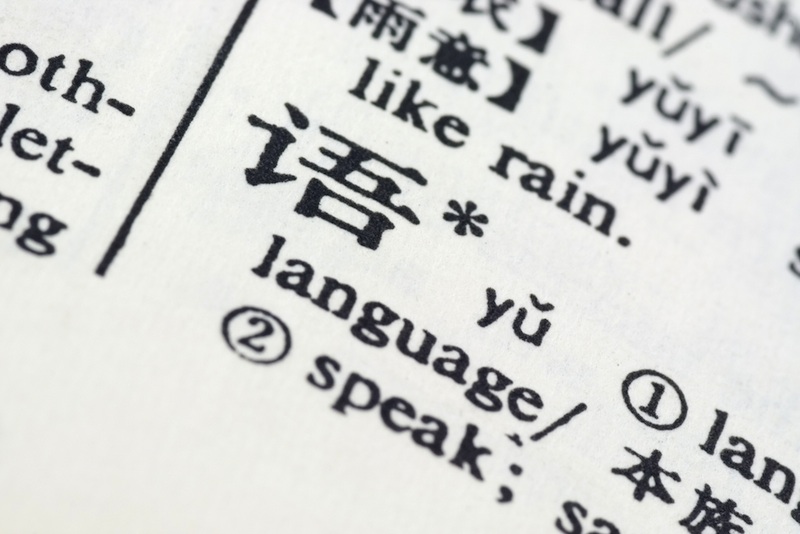Brain Represses Bad Words for Bilingual Readers

Get the world’s most fascinating discoveries delivered straight to your inbox.
You are now subscribed
Your newsletter sign-up was successful
Want to add more newsletters?

Delivered Daily
Daily Newsletter
Sign up for the latest discoveries, groundbreaking research and fascinating breakthroughs that impact you and the wider world direct to your inbox.

Once a week
Life's Little Mysteries
Feed your curiosity with an exclusive mystery every week, solved with science and delivered direct to your inbox before it's seen anywhere else.

Once a week
How It Works
Sign up to our free science & technology newsletter for your weekly fix of fascinating articles, quick quizzes, amazing images, and more

Delivered daily
Space.com Newsletter
Breaking space news, the latest updates on rocket launches, skywatching events and more!

Once a month
Watch This Space
Sign up to our monthly entertainment newsletter to keep up with all our coverage of the latest sci-fi and space movies, tv shows, games and books.

Once a week
Night Sky This Week
Discover this week's must-see night sky events, moon phases, and stunning astrophotos. Sign up for our skywatching newsletter and explore the universe with us!
Join the club
Get full access to premium articles, exclusive features and a growing list of member rewards.
Reading a nasty word in a second language may not pack the punch it would in your native tongue, thanks to an unconscious brain quirk that tamps down potentially disturbing emotions, a new study finds.
When reading negative words such as "failure" in their non-native language, bilingual Chinese-English speakers did not show the same brain response as seen when they read neutral words such as "aim." The finding suggests that the brain can process the meaning of words in the unconscious, while "withholding" information from our conscious minds.
"We devised this experiment to unravel the unconscious interactions between the processing of emotional content and access to the native language system. We think we've identified, for the first time, the mechanism by which emotion controls fundamental thought processes outside consciousness," study researcher Yanjing Wu, a psychologist at Bangor University in the United Kingdom, said in a statement. "Perhaps this is a process that resembles the mental repression mechanism that people have theorized about but never previously located."
Translating negativity
Bilingual people typically respond less emotionally to words in their second language. For example, swear words in a foreign tongue don't usually feel as shocking; likewise, some research has found that people are more comfortable talking about embarrassing topics in a second language. [7 Thoughts That Are Bad For You]
To unravel the emotions of language, Wu and his colleague Guillaume Thierry, also of Bangor University, recruited 15 native English speakers, 15 native Chinese speakers, and 15 native Chinese speakers who were also fluent in English (all had first learned English around age 12). They set up an experiment in which these volunteers saw word pairs on a screen. One of the words was always neutral, while the other could be neutral, positive or negative. In addition, each word was two syllables in Chinese, with the first syllable of each word always sounding the same.
For example, the positive word "honesty" was paired with the neutral word "program." In Chinese, honesty translates to "chengshi" and program to "chengxu." Negative words included failure, war, discomfort and unfortunate.
Get the world’s most fascinating discoveries delivered straight to your inbox.
The participants were asked to push a button if the words were linked in meaning. (In some pairs, they were.) Meanwhile, the scientists used electrodes on the scalp to measure the electrical response in the brain to reading these pairs of words.
Self-protection
The findings revealed that although they weren't aware of it, the bilingual participants' brains were translating the positive and neutral words into Chinese as they read them in English. But surprisingly, this response was absent when they read negative words.
"We were extremely surprised by our finding," Thierry said in a statement. "We were expecting to find modulation between the different words — and perhaps a heightened reaction to the emotional word — but what we found was the exact opposite to what we expected — a cancellation of the response to the negative words."
It's not yet clear why the brain dampens the response to these words, the researchers report Tuesday (May 8) in the Journal of Neuroscience
"We think this is a protective mechanism," Thierry said. "We know that in trauma, for example, people behave very differently. Surface conscious processes are modulated by a deeper emotional system in the brain. Perhaps this brain mechanism spontaneously minimizes negative impact of disturbing emotional content on our thinking, to prevent causing anxiety or mental discomfort."
You can follow LiveScience senior writer Stephanie Pappas on Twitter @sipappas. Follow LiveScience for the latest in science news and discoveries on Twitter @livescience and on Facebook.
 Live Science Plus
Live Science Plus











